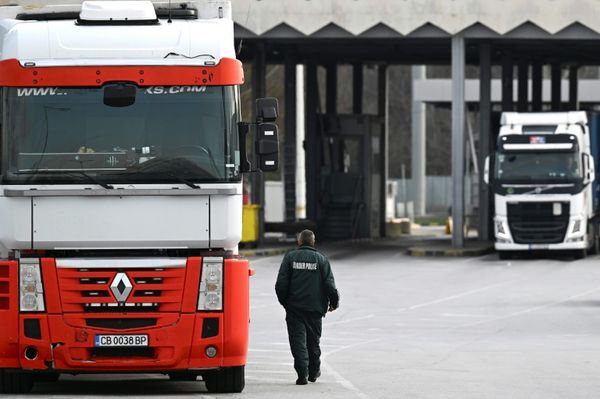Alphabet (GOOGL) doesn't seem very welcome in Europe.
Alphabet's Google unit is still fighting a $1.6 billion (1.49 billion euro) European Union fine imposed by EU antitrust regulators from three years ago.
The EU charged Google with hindering online search advertising from rivals.
That fine is just one of three actions the EU has taken against the internet giant, totaling $8.8 billion (8.25 billion euro).
In 2021, the company lost its court fight against a $2.8 billion (2.42 billion euro) fine after EU regulators ruled in 2017 that Google had pushed its own shopping services on its platforms. The company contested the ruling, leading to a years-long review process.
But those fines pale in comparison to the $5 billion (4.34 billion euro) fine that the EU levied against Google in 2018 that the company is still fighting.
That penalty was levied after regulators said that since 2011 the company had been using its Android mobile operating system to hamper rivals and strengthen its own internet search business.
It was the largest fine ever levied against the company, and Alphabet is asking the court to lower the fine or rescind it altogether.
Despite all of the regulatory hurdles, the European market is still incredibly lucrative for the company.
Google absolutely dominates the European search engine market with a more than 92% market share. For comparison, in the U.S. Google has an 87% market share
Google's Troubles Compounded in the U.K.
Unfortunately for Google, the U.K. is no longer part of the EU, so the company has different regulatory hurdles to overcome there.
On May 26, the U.K. Competition and Markets Authority opened a new investigation into whether Google has broken its laws by, you guessed it, restricting competition in digital advertising.
This is the agency's second probe of Google, but this time the CMA is examining "whether Google limited the interoperability of its ad exchange with third-party publisher ad servers and/or contractually tied these services together, making it more difficult for rival ad servers to compete."
The CMA is also probing whether Google used its publisher ad server and its demand side platforms to illegally favor its own ad exchange services "while taking steps to exclude the services offered by rivals."
"We’re worried that Google may be using its position in ad tech to favor its own services to the detriment of its rivals, of its customers and ultimately of consumers," CAM Chief Executive Andrea Coscelli said.
"Weakening competition in this area could reduce the ad revenues of publishers, who may be forced to compromise the quality of their content to cut costs or put their content behind paywalls. It may also be raising costs for advertisers which are passed on through higher prices for advertised goods and services."
Google Struggles With Ad Revenue
For the first time in a long time, Alphabet's stock price is experiencing a prolonged downturn. Year to date, shares are down about 27%.
While the wider market has also tanked in recent weeks, Alphabet's struggles were peaking through prior to the market selloff.
Reading the tea leaves suggest that online ad revenue may continue to falter in 2022, and that is the lions' share of Alphabet's revenue.
Earlier this week, social media company Snap Inc. (SNAP) warned investors that a 'deteriorating' global economy would hurt its bottom line.
Snap, which relies on ad spending for the vast majority of its revenues, said that the "macroeconomic environment has deteriorated further and faster than anticipated", causing companies to pull back on ad spending as they reevaluate priorities in a weakening economy.
If the global economy is truly headed towards a recession, then ad spending will undoubtedly come under pressure.
Just another headwind for Google at a time when Europe is stepping up its regulation of the company.







